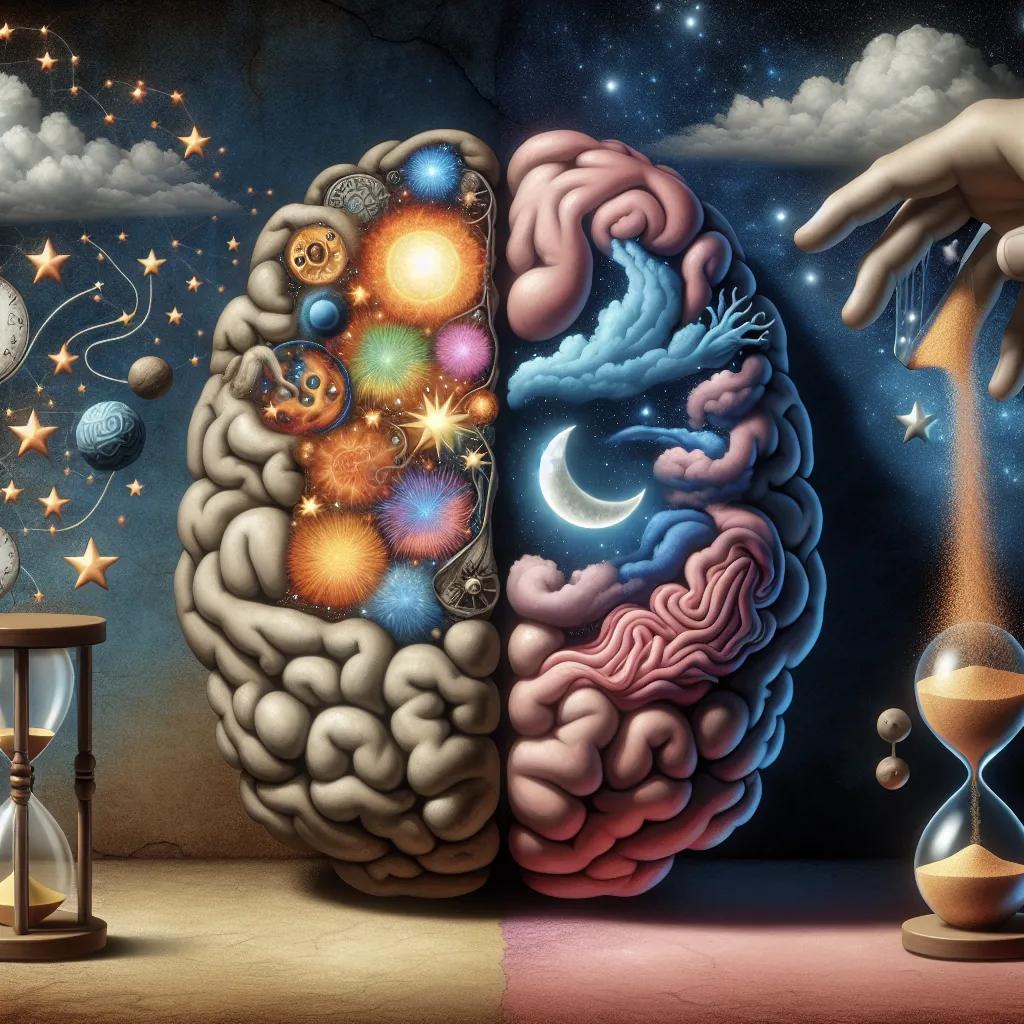
- Published on
- Authors

- Name
- You
The Neurological Effects of Sleep Deprivation on Dreaming
Sleep, often called the gentle tyrant of the night, plays a fundamental role in the intricate ballet of our brains. When deprived of this vital rest, our neurological landscape transforms, leading to fascinating and sometimes bizarre consequences, especially in the realm of dreaming. Journey with me through a dance of science and mysticism, as we unravel the effects of sleep deprivation on dreaming.
The Science of Sleep and Dreams
In the heart of the brain lies the mysterious domain of the Pineal Gland, often revered in mystic traditions as the "Third Eye". This small endocrine gland secretes melatonin, guiding us into slumber's embrace. When sleep evades us, our bodies face a cascade of changes.
Neurological Impact of Sleep Deprivation
The following table summarizes the key neurological effects:
| Neurological Effect | Description | Mystical Interpretation |
|---|---|---|
| Increased Cortisol Levels | Stress hormone levels surge, heightening anxiety and irascibility. | Energetic imbalance manifesting as heightened stress. |
| Reduced Hippocampal Activity | Impairs memory consolidation, affecting short-term recall and learning. | Disconnection from the Akashic records (universal memory). |
| Altered Dopamine Signals | Disrupts reward systems, leading to mood swings and impaired judgment. | Misalignment in energy pathways, causing emotional turbulence. |
| Decreased Prefrontal Cortex Function | Hinders decision-making, impulse control, and complex thought processes. | Fogging of the Third Eye, blurring insight and intuition. |
Dreams: A Portal to the Subconscious
In a state of sleep deprivation, the brain's desperate clamor for REM (Rapid Eye Movement) sleep, the stage where vivid dreams thrive, becomes more pronounced. As the body undergoes this strain, dream patterns may alter dramatically:
- Hypnagogic Hallucinations: These startling visions occur at the brink of wakefulness and sleep, blending reality with dream imagery. Mystics often see this as a thinning of the Veil between realms.
- Lucid Dreams: Sleep-deprived individuals may experience an unexpected increase in lucid dreams — those in which the dreamer becomes aware they are dreaming. This occurrence can be viewed as an invitation to engage consciously with the subconscious landscape.
- Nightmares and Vivid Dreams: The brain's heightened activity can lead to intense, often disturbing dreams, reflecting the turmoil within the sleep-deprived psyche.
Bridging Science and Mysticism
From the shamanic journeying practices to the labyrinthine paths of quantum mechanics, the bridge between science and mysticism offers profound insights. In sleep, the mundane merges with the ethereal, making dreaming a sacred act of creation.
The Quantum Dreamscape
Consider the notion of the Multiverse in quantum mechanics, where multiple realities unfold simultaneously. Dreams can be glimpsed as forays into these parallel dimensions, providing fresh perspectives and undiscovered truths. A night of disrupted sleep might act as a tuning fork, aligning consciousness to these alternate realms, albeit chaotically.
Shamanic Dreamwork
Shamans and spiritual practitioners recognize the power of dreams as portals to higher dimensions. In states of sleep deprivation, where the barriers between the conscious and subconscious thin, the dream world can offer profound messages. These lucid interludes or startling hypnagogic visions can be harnessed for spiritual growth and healing.
The Path to Restful Slumber
To navigate the perilous waters of sleep deprivation, one must seek the haven of restorative rest. Integrating both scientific and mystical practices can aid in achieving this balance:
- Mindfulness Meditation: Engage in daily meditation to calm the mind and prepare it for sleep. This can harmonize the body's energy and reduce cortisol levels.
- Herbal Rituals: Embrace natural sleep aids like valerian root or chamomile tea. These ancient remedies have soothed restless souls for centuries.
- Dream Journaling: Keep a journal by your bedside to capture fleeting dream fragments. This practice can enhance lucid dreaming and offer insights into the subconscious.
Conclusion
In the grand tapestry of existence, sleep is the weaver's loom, crafting our waking reality. Whether viewed through the lens of science or mysticism, the neurological effects of sleep deprivation on dreaming illuminate the vital interplay between rest and consciousness. Embrace the wisdom of your dreams, nurture your night, and let the dance of neurons and mystic visions guide you to a place of enlightenment and balance.
Awaken, dreamer, to the mysteries of sleep.
